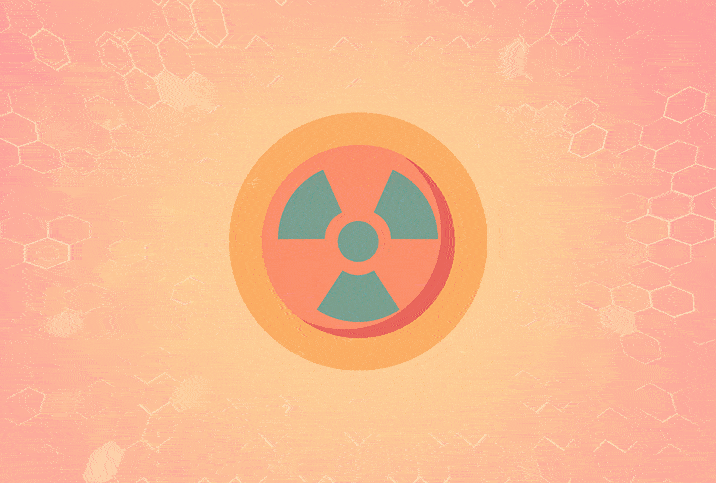How Dangerous Is Radiation Therapy for Your Genitals?

Key Points
- Radiation therapy can lead to significant side effects that impact both men and women, including sexual and reproductive functions.
- The genitals can represent emotional and psychological facets of a person's identity, and any potential harm might be distressing.
- Discussing the benefits of counseling and therapy throughout treatment and beyond is important for cancer patients.
Radiation therapy is often a cornerstone treatment when combatting cancer, helping countless patients on their journey toward recovery. However, like all medical treatments, it comes with concerns, especially when the radiation targets or affects the genital region.
For many, the genitals represent several physical, emotional and psychological facets of their identity and any potential harm can prove distressing.
In this article, experts will speak to the validity of radiation therapy and explore the possible risks and side effects on the genitals. But first, why would radiation therapy be applied to the genitals in the first place?
Certain cancers located either in or close to the genitals might necessitate radiation therapy for effective treatment. These can include:
- Cervical cancer
- Prostate cancer
- Testicular cancer
- Vulvar or vaginal cancers
What are the possible side effects for women?
According to 2009 research, 35 percent to 94 percent of women experience some form of adverse symptom to their sexual health following cancer treatment. These conditions may include the following:
- Decreased estrogen levels. For certain cancer treatments—such as those for breast cancer—hormone therapies may reduce estrogen levels in the body. Estrogen helps maintain the elasticity and health of vaginal tissues.
- Inflammation. Radiation therapy can cause inflammation of the vaginal tissues. In the healing process following inflammation, fibrous tissue may develop, leading to stenosis.
- Reduced blood flow. Radiation can reduce blood flow to the treated areas. Reduced blood flow can impair tissue healing and regeneration, contributing to the development of scar tissue and subsequent narrowing.
- Reduced natural lubrication. Radiation can affect the glands responsible for producing natural lubrication, leading to vaginal dryness. Dryness can make the tissue more susceptible to injury, inflammation and subsequent scarring.
- Vaginal stenosis. This is a condition that causes the vagina to narrow or shorten, often a result of radiation therapy for cancers such as cervical or vaginal cancer.
What are the possible side effects for men?
For men with cancer, sexual dysfunction is common. Based on the assessment from 2009 referred to above, 49 percent of men reported erectile dysfunction (ED) and 30 percent indicated they had orgasmic/ejaculatory issues. Here are some of the conditions men run the risk of developing following radiation therapy:
- Dry ejaculation or reduced semen volume. Radiation therapy can affect the prostate and seminal vesicles, which produce most of the fluid in semen. This can lead to dry orgasms or significantly reduced ejaculate volume.
- Erectile dysfunction. Radiation therapy can damage the blood vessels and nerves responsible for erections. This is one of the most common side effects men report after receiving radiation treatment for prostate cancer, according to a 2014 report.
- Infertility. Radiation can impair spermatogenesis (the production of sperm). Men who wish to play a leading role in having children in the future should consider banking sperm prior to radiation therapy.
- Pain or discomfort. Radiation can cause inflammation and tenderness in the treated areas, leading to pain or discomfort in the genital region.
- Penile fibrosis. As scarring can occur in the vaginal tissues in women, it can develop in the penis, too. This can result in a condition called Peyronie's disease, where scar tissue causes the penis to bend or curve, making erections painful and sexual activity challenging.
- Reduced testosterone levels. Radiation to the testicles or the use of certain hormone therapies to treat prostate cancer can lead to a reduction in testosterone levels. Low testosterone can result in decreased libido, energy and mood changes.
Recommended
- Sex After Prostate Cancer: Various treatments for prostate cancer may have more outcomes than just managing your illness.
- Sex After Ovarian Cancer: Ovarian cancer can uproot your life, but your sex life doesn't have to suffer forever.
- Orgasmic Meditation Uses Sexual Touch to Enhance the Experience: Meditation and sexual release both help you relax and relieve stress. Why not try them together?
How specialists mitigate risks
"Before beginning treatment, people should discuss potential side effects and long-term implications with their doctor," said Garvit Chitkara, M.D., a surgical oncologist in Mumbai, India. "People should also get regular checkups after their treatment has ended in order to monitor any potential side effects or recurrence of the cancer."
Here are some strategies you should discuss with your healthcare provider to address any emotional or physical issues that may arise due to radiation therapy:
- Advanced technologies. Modern radiation machines and techniques allow for incredibly precise targeting, which helps focus the radiation solely on cancer cells and thus spares the surrounding tissues as much as possible, according to a 2015 report.
- Multidisciplinary treatment. This involves a team of professionals, including psychologists, psychiatrists, medical practitioners and therapists, working collaboratively to address various aspects of sexual dysfunction.
- Sexual rehabilitation programs. Recognizing the profound impact of cancer and its treatments on sexual health, many oncology settings now offer sexual rehabilitation programs.
- Post-treatment therapies. To support genital health after treatment, specialists might recommend specific therapies or interventions, such as physical therapy, to help restore function and comfort. This includes pelvic floor exercises, which have been shown to be effective at restoring sexual function in both men and women.
- Vaginal dilator. This medical tool used to help stretch and maintain the size of the vaginal canal is meant for women experiencing stenosis or narrowing of the vagina.
5 Things to Know About Masturbation: Whether an old hand or a new practitioner, you can always learn more about masturbation. You may even have perhaps carried out your own research on masturbation over the years and built up a sizable base of knowledge regarding this pleasurable topic. But you may not be aware of these five important facts.
"It's important to remember that radiation therapy can be an immensely helpful tool in the diagnosis and treatment of cancer," Chitkara said. "In many cases, people experience successful outcomes from their treatment without any long-term effects. With proper medical care and vigilance, individuals who undergo radiation therapy can ensure that they are able to safely and effectively battle against cancer."
"A cancer diagnosis is often a life-altering event and there is no such thing as good cancer," said Eleonora Teplinsky, M.D., a board-certified medical oncologist specializing in breast and gynecologic oncology in Paramus, New Jersey. "Patients facing a cancer diagnosis often have to undergo many diagnostic tests and procedures. They may require treatments such as surgery, radiation, chemotherapy and targeted therapy, among others. Both physical health and mental health can be impacted as a result of a cancer diagnosis and treatment."
The mental health impacts of cancer are often not discussed and even stigmatized she noted.
"Patients may experience symptoms and feelings of anxiety, depression, distress, sadness, fear, anger, among others," Teplinksky said. "These symptoms may often persist beyond active cancer treatment. Addressing mental health and discussing the benefits of counseling and therapy at the onset of a cancer diagnosis, throughout treatment and beyond are of critical importance."
Seeking support to make the journey more navigable
Radiation therapy, while a powerful tool against cancer, does come with its challenges, especially when the genital region is involved. However, with advancements in medical technology and the care provided by dedicated professionals, the risks can often be managed and minimized.
Patients who prioritize being informed and proactive and seek the support they need can make the journey more navigable. Your concerns are valid and you deserve comprehensive care and understanding every step of the way.
"I encourage all patients to advocate for themselves," Teplinksy said. "Do not be afraid to speak up if you feel like you are not being heard or your concerns are not being addressed. Patients are equal partners in their healthcare."


















